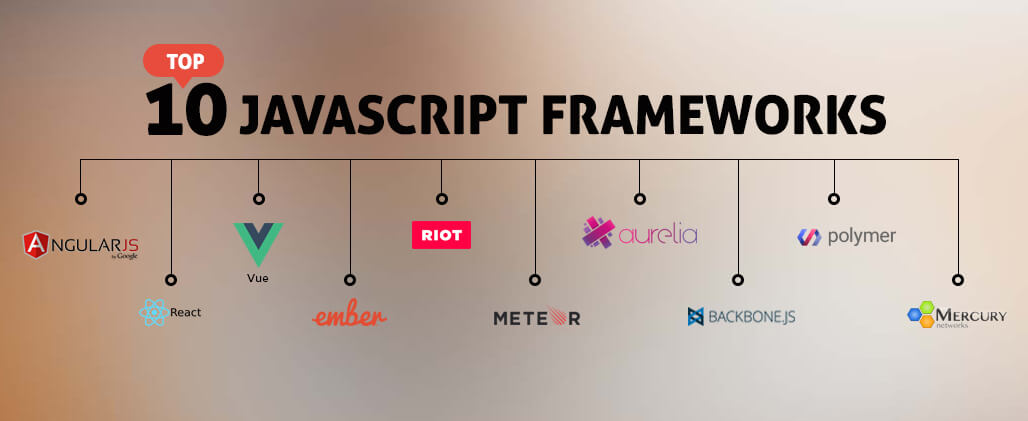Darsazma News Hub
Your go-to source for the latest news and insightful information.
Dancing with JavaScript Frameworks: Finding Your Rhythm
Unlock the secrets of mastering JavaScript frameworks and discover your coding rhythm with our ultimate guide!
The Ultimate Guide to Choosing the Right JavaScript Framework for Your Project
Choosing the right JavaScript framework for your project can significantly influence both the development process and the performance of your application. With numerous options available, it's essential to consider several key factors before making your decision. First, assess the specific needs of your project. Are you building a simple website, a complex single-page application, or perhaps a mobile app? By identifying your project requirements, you can narrow down your choices. Next, consider the framework's community support and documentation. A well-documented framework with an active community can be invaluable, providing resources and assistance when you run into challenges.
Additionally, pay attention to the framework's performance and scalability. Some frameworks, like React and Vue.js, are renowned for their efficiency and speed, making them ideal for high-performance web apps. On the other hand, if rapid development is a priority, you might prefer a more feature-rich framework like Angular, which comes with built-in functionalities. As you evaluate your options, create a checklist of essential features, such as component reusability, state management, and ease of integration with existing tools. Ultimately, selecting the right JavaScript framework is about finding the perfect balance between functionality and simplicity tailored to your project's unique demands.

5 Common Pitfalls to Avoid When Working with JavaScript Frameworks
When embracing modern development practices, JavaScript frameworks can provide powerful tools to enhance your web applications. However, there are several common pitfalls that developers should avoid to ensure a smooth development experience. Overlooking documentation is one major mistake; thorough understanding of the framework’s specifics is essential. Additionally, neglecting updates can lead to vulnerabilities and compatibility issues. Staying informed about the latest releases and community best practices will help you maintain a robust application.
Another common error is overusing features provided by the framework, which can lead to bloated code and decreased performance. Instead, it's wise to adhere to best practices and use the framework's capabilities judiciously. Finally, ignoring testing can have dire consequences; every function and component should be thoroughly tested to maintain reliable functionality. By steering clear of these pitfalls, developers can harness the full potential of JavaScript frameworks and build effective applications.
How to Dance with JavaScript Frameworks: Tips for Enhancing Your Web Development Skills
Dancing with JavaScript frameworks requires a blend of creativity and technical skill. First, it's essential to familiarize yourself with the most popular frameworks such as React, Angular, and Vue.js. Each offers unique features that can enhance your web development process. To get started, consider the following tips:
- Master the Basics: Ensure you have a solid understanding of JavaScript before diving into any framework.
- Explore Documentation: Comprehensive documentation is key to mastering a framework, so spend time reading and practicing the examples.
- Build Projects: Apply what you learn by building small projects to solidify your understanding.
As you become more comfortable with the JavaScript frameworks, focus on best practices to optimize your development. Consider implementing modular code to keep your project organized and maintainable. Additionally, leverage tools and libraries that integrate well with your chosen framework to enhance functionality. Regularly engage with the community by participating in forums or attending meetups, as networking can provide helpful insights and collaboration opportunities. Remember, mastering JavaScript frameworks is a journey, and continuous learning is the key to success!